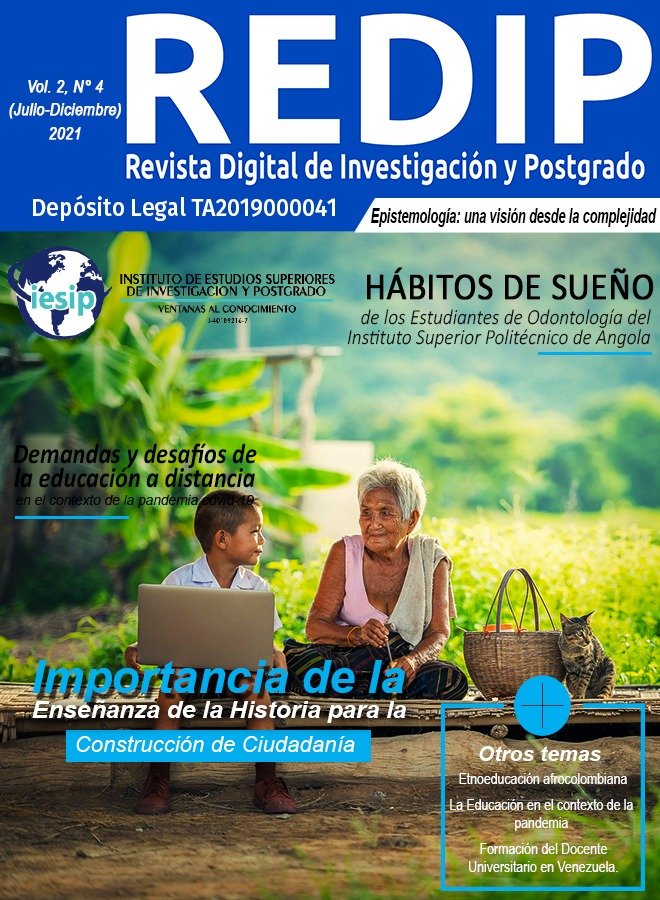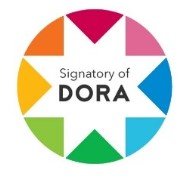Epistemology
A view from complexity
DOI:
https://doi.org/10.59654/ev41pn97Keywords:
Epistemology, Complexity, Complex thinkingAbstract
The current vision of phenomena in which the individual is immersed brings with it the need to treat them from their complexity for the complexity of the multiple scenarios in which they are revealed. Accordingly, developing structures of thought conducive to the production of abductive form of concepts and definitions, which generate fundamental
answers to problems affecting society, is a commitment that epistemology brings with it. Under this vision, the authors consider of primacy to estimate on the
one hand, that epistemology constitutes a corpus that interweaves the conjectural plot of knowledge about the genesis of itself and on the other hand to recognise complex thinking as reasoning in order to transform human realities; because complexity is a univocal feature of any situation that involves the context, in a trans-disciplinary, interdisciplinary or meta-knowledge integration, in which autopoiesis is manifested.
Downloads
References
Acevedo, A. (2011). El Pensamiento Complejo de Edgar Morín. Tolerancia, cultura, democracia y otros ensayos. https://www.monografias.com/trabajos81/toleranciacultura-democracia-y-otros-ensayos/tolerancia-cultura-democracia-y-otros-ensayos6.shtml
Briones (1996). Epistemología de las ciencias sociales. Especialización en Teoría, métodos y técnicas de investigación social. ICFES. https://cordescor poracion.cl/wpcontent/uploads/2018/03/epistemologi%CC%81a-briones.pdf
Lakatos, I. (1983). La Metodología de los programas de Investigación Científica. Alianza Editorial.
Martínez, M. (2004). Investigación Cualitativa en Educación. Trillas.
Martínez, M. (2011). El paradigma sistémico, la complejidad y la transdisciplinariedad como bases epistémicas de la investigación cualitativa. Revista Electrónica de Humanidades, Educación y Comunicación Social, REDHECS, 11(6), 6-27. http://ojs.urbe.edu/index.php/redhecs/article/view/245
Morin, E. (1990). Introducción al pensamiento complejo. Gedisa Editorial.
Morin, E. y Anne, B. (1993). Tierra - Patria. Nueva Visión.
Padrón, J. (2007). Tendencias epistemológicas de la investigación científica en el siglo XXI. Cinta MOEBIO 28, 1-32. http://www.facso.uchile.cl/publicaciones/moebio/28/padron.pdf
Schavino, N. (2014). Disquisiciones Transcomplejas de la Hegemonía Epistemológica a la Diversidad Paradigmática. Investigación y Creatividad. Revista Oficial del Decanato, 12(1), 9-32. http://uba.edu.ve/wp-content/uploads/2020/03/r11.pdf
Pérez, S. G (1988). Metodología Cualitativa. Retos e interrogantes. Madrid. La Muralla.
Ricci (1999). Acerca de una Epistemología Integradora. Cinta MOEBIO 5, 2-5. https://www.moebio.uchile.cl/05/ricci.html
Ruiz, O. J. (2003). Metodología de la Investigación Cualitativa. Universidad de Deusto. Bilbao.
Rusque, A. (1999). De la diversidad a la unidad en la investigación cualitativa. Vadell Hermanos editores.
Taylor, S. y Bogdan, R. (1992). Introducción a los Métodos Cualitativos de Investigación. Paidós.
Downloads
Published
Issue
Section
License
Copyright (c) 2024 Revista Digital de Investigación y Postgrado

This work is licensed under a Creative Commons Attribution-NonCommercial-ShareAlike 4.0 International License.
Esta licencia permite a los reutilizadores distribuir, remezclar, adaptar y desarrollar el material en cualquier medio o formato únicamente con fines no comerciales, y solo siempre que se atribuya al creador. Si remezclas, adaptas o construyes sobre el material, debes licenciar el material modificado bajo términos idénticos. CC BY-NC-SA incluye los siguientes elementos:
![]() POR: se debe dar crédito al creador.
POR: se debe dar crédito al creador.![]() NC: Sólo se permiten usos no comerciales de la obra.
NC: Sólo se permiten usos no comerciales de la obra.![]() SA: Las adaptaciones deben compartirse en los mismos términos.
SA: Las adaptaciones deben compartirse en los mismos términos.











